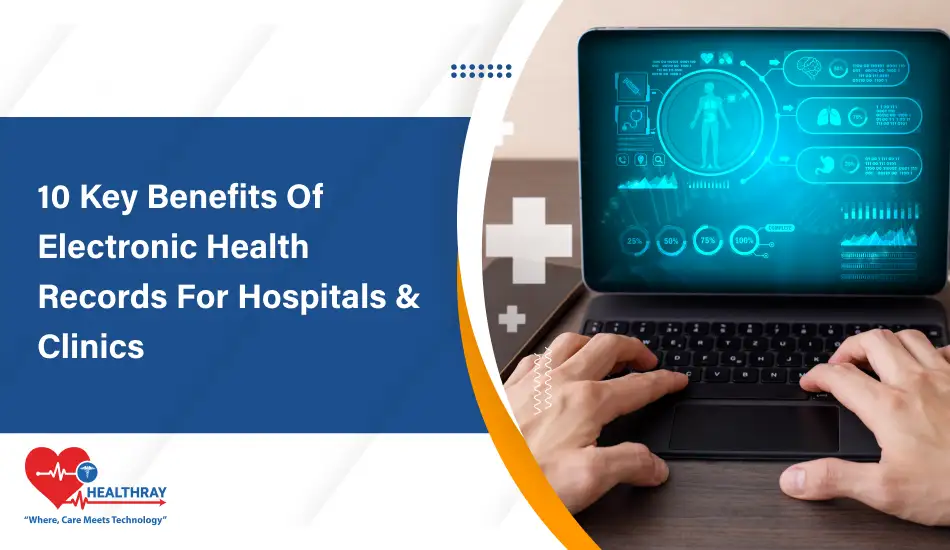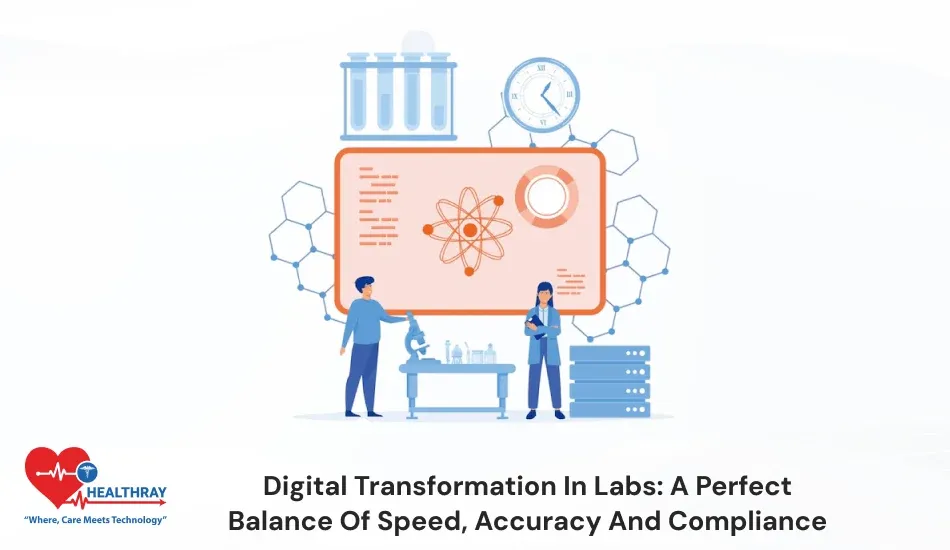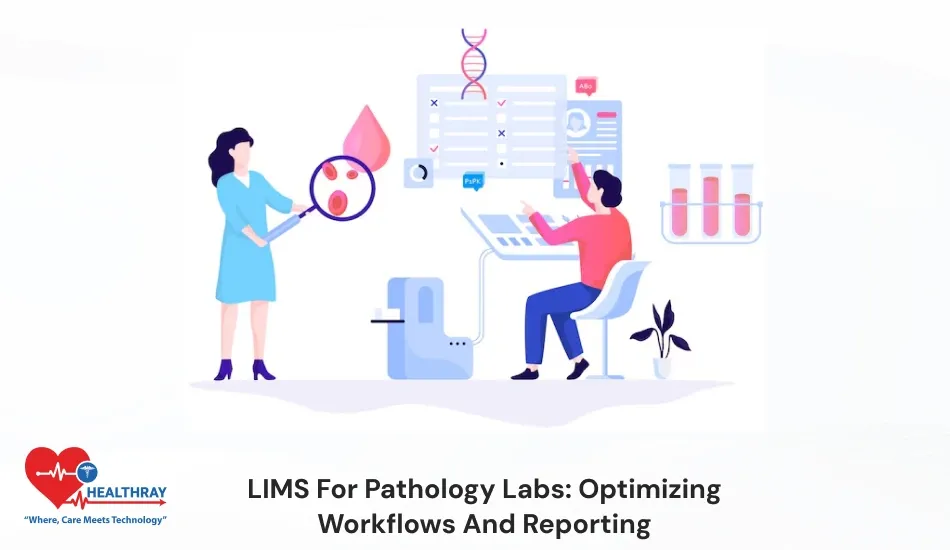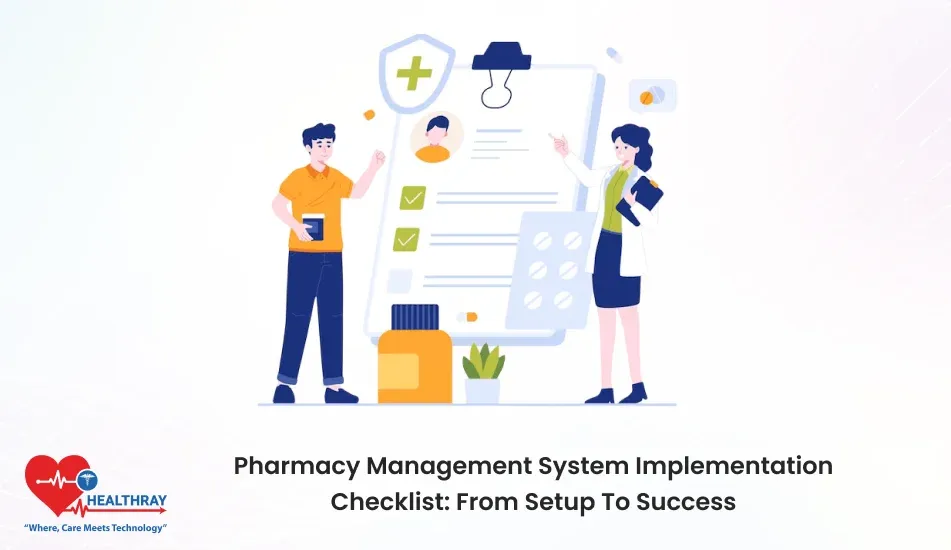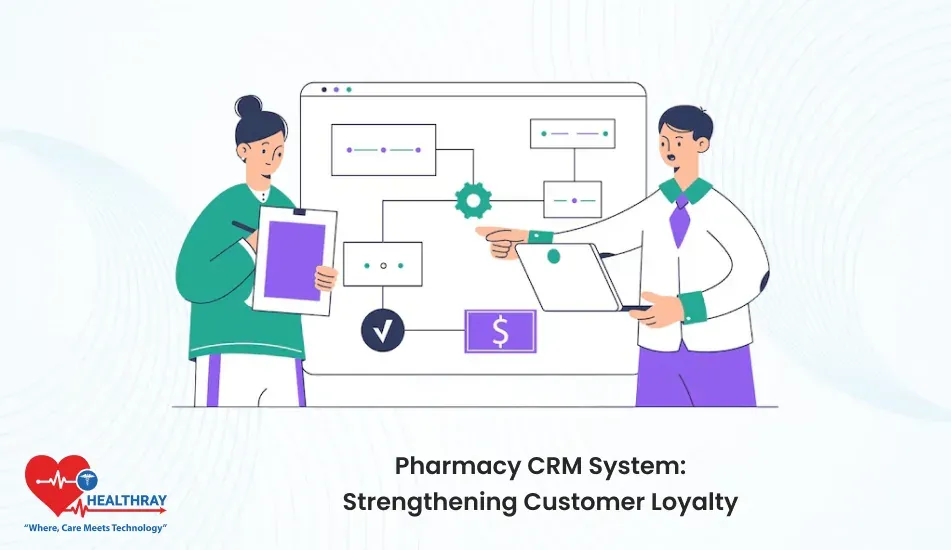Summary
The benefits of electronic health records are higher quality, safety, and overall efficiency of care for the hospital and patient. EHR software or EHR systems provide for the ability to access information in real time, make better decisions, maintain the security of information, and manage population health.
They help in cost savings and better coordination, as well as patient empowerment. They also enable research & compliance support, as well as scalable, more intelligent doctor and patient workflows.
Introduction
What if one digital tweak could change how hospitals care for every patient? The benefits of Electronic Health Records are doing just that.
In hospitals and clinics, doctors’ and nurses’ work are being transformed by technology. With EHR systems, they can get real-time patient information with a few clicks. This instant access leads to faster decisions, safer treatments, and better outcomes.
Also, the EHR links each department in the hospital, allowing for seamless information transfer. It reduces paperwork, minimises confusion, and saves time. As a result, medical teams spend more time healing people, not handling files.
So why are healthcare leaders calling EHR Software revolutionary? Because of its effect that goes beyond technology. Let’s look at the top 10 benefits of electronic health records that are enabling hospitals and clinics to provide care faster, safer, and more connected than ever.
What are Electronic Health Records (EHRs)?
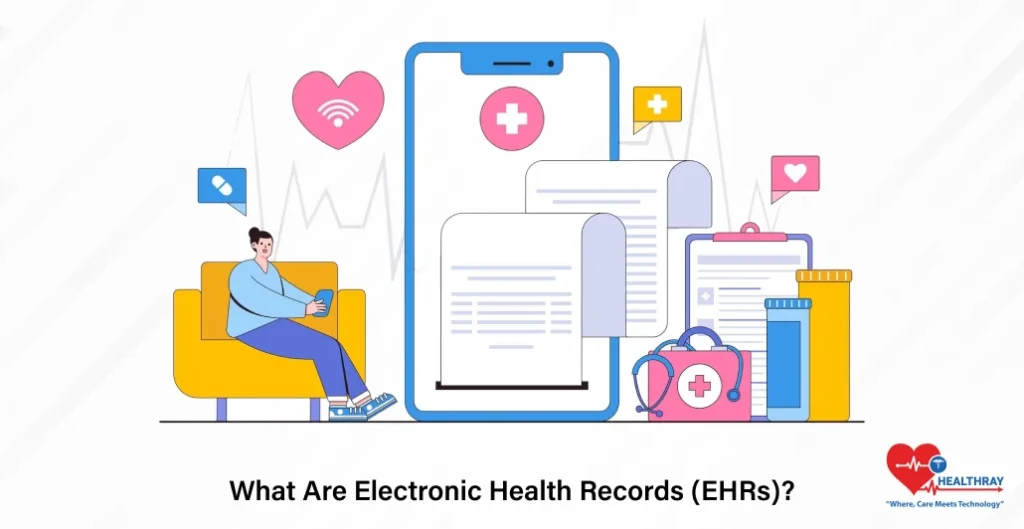
Electronic Health Records (EHRs) are a digital version of a patient’s full medical history. They store everything from diagnoses and lab reports to medications and allergies. Unlike paper files, all information in EHRs is kept in one secure, easily accessible location. Doctors can instantly update data and pull in other specialists if needed.
EHR softwares also allow hospitals to assess patients across time. They also cut down on duplicate tests and avoid costly mistakes. Each click provides a better picture of a patient’s health narrative for physicians.
Consider a patient, Riya, who goes to two different hospitals. Without an EHR in hospitals, a doctor may request the same tests afresh. But with integrated EHR systems, the second doctor can instantly access Riya’s test results from anywhere online. This saves time, costs and allows for faster care.
What are the 10 Key Benefits of Electronic Health Records?
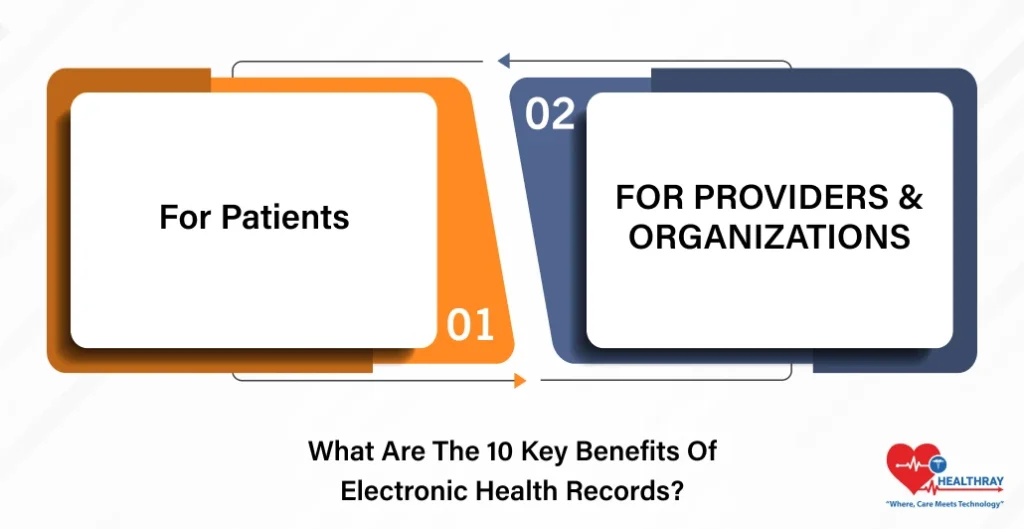
The impacts of EHR systems continue to expand daily, from safety to decision support. Here are 10 important ways these digital tools are changing health care for patients and providers.
For Patients
Improved Care Quality
EHR systems have many advantages, beginning with improved quality of care. All information for each patient, from allergies to lab results, is kept in one location. Doctors can examine full medical histories prior to treatment.
It helps them select safer medicines, plan procedures accurately, and avoid mistakes that can be harmful. All that information changes the pace and accuracy of care when it is transmitted seamlessly via electronic health record systems.
So, if Rohan is walking into a new clinic, the doctor opens his EHR and sees immediately past prescriptions and test results. This avoids duplication and saves the physician time. With EHR Systems in hospitals, every medical decision is a smarter decision because it is based on complete and real-time information.
Enhanced Safety
Among the most prominent benefits of Electronic Health Records is safety. Mistakes in analogue documentation frequently occur when handwriting is illegible or data is not entered properly. But EHR softwares automatically check for issues like drug allergies or wrong dosages. They send up alerts when something seems risky.
If a doctor tries to prescribe a medicine that clashes with another drug, the EHR system would warn him right away. A little warning like this can save people from serious injury. It puts better patient safety above all in each hospital or clinic. With EHR in hospitals, lives are protected with automated accuracy.
Better Patient Engagement
Patients today want to be more active in their health, and EHR software enables that. Many systems allow patients to log in and see reports and check progress. They can view test results and check on their recovery, and even message their doctors securely.
It provides an accessible way that creates trust and awareness. When patients understand their own data, they ask better questions and follow treatment plans more carefully.
For example, Meera, a diabetes patient, accesses her hospital’s EHR portal to keep tabs on her sugar levels and her doctor’s notes. That helps keep her motivated about her health goals. The benefits of Electronic Health Records go well beyond hospitals, empowering individuals to manage their own paths to wellness.
More Informed Decisions
Patients make better decisions when they can see their own history more clearly. EHR systems allow them to see all test results, medications, and doctor recommendations. They can compare options, seek second opinions, or, in prevention, plan ahead easily.
Consider Arjun, who required surgery. Before committing, he looked at all of his records in the electronic health record system and consulted a second specialist. The detailed data enabled both doctors to agree on the best treatment. That’s how EHR in hospitals leads to better decision-making.
FOR PROVIDERS & ORGANIZATIONS
Improved Efficiency
Time is critical in healthcare, and EHR softwares save plenty of it. Doctors no longer riffle through paper files. They can drop into any record instantly. Lab reports, imaging and prescriptions are a few taps away. It improves hospital efficiency and gives patients more time.
So, when a doctor logs onto the EHR system, he/she visit all appointments, lab results, and notes from one screen. He/she spends less time hunting and more time listening. Therefore, EHR in hospitals increase efficiencies and alleviates employee burnout. Such benefits of Electronic Health Records are evident in workflow, cleaner processes, faster decisions, and happier teams.
Enhanced Care Coordination
Coordination is the lifeblood of today’s medical practice, and it becomes easy with EHRs. They connect specialists and labs, and pharmacies in real time. All updated patient information is instantly accessible to everyone.
For instance, when a cardiologist updates a note, the general physician sees it instantly through the electronic health record system. This ensures that all of the providers are working from the same information. No missed updates, no retests and no interruptions in care.
If hospitals have EHRs, the right hand knows what the left is doing. Such a type of coordination leads to quicker treatment and better outcomes for patients.
Step towards digital era with our healthcare solution
Revamp your hospital facilities and embrace change for better healthcare management. Ease in managing and organizing large medical datasets leads to effective analysis. Seize the opportunity now!
Reduced Costs
Healthcare costs are ever rising, but EHR softwares help to reduce wasteful expenditure. They reduce duplications, prevent medication errors, and eliminate paper costs. Fewer repeated tests help the bottom line for hospitals and patients.
One clinic demonstrated a 40% reduction in pharmacy errors by utilising electronic prescriptions through their EHR. Another benefit of electronic health records is better billing. Automated coding helps minimise rejected claims and accelerate payments on reimbursements. Such smarter systems save time and money, and everyone benefits.
Better Decision-Making
Good data leads to good decisions. EHR systems present real-time data to doctors using graphs, alerts and analytics. They can spot trends and anticipate risks early. This allows doctors to design correct and personalised plans for treatment.
If a patient’s blood pressure is high over several visits, the EHR software flags this data point. The doctor can adjust medication before things get worse. This type of proactive care is one of the huge benefits of electronic health records.
With electronic health record systems, hospitals move from reactive to predictive care, making health care smarter, faster, and safer.
Increased Security and Privacy
Paper files are easily lost or stolen. EHR software, on the other hand, has strong security tools. Patient information is protected through access controls, data encryption, and password protection. Only authorised users can open or change any data.
If a hospital uses EHR, every action is recorded. The system knows who has looked at or edited a file. They also foster trust and comply with very strict legal requirements. Backups and disaster recovery are also easier with electronic health record systems. In the event of a system crash, information can be restored instantaneously.
There are obvious benefits of Electronic Health Records in terms of peace of mind for patients, doctors, and hospitals.
Population Health Management
In addition to helping with individual care, EHR systems assist hospitals in managing the health of communities. When hospitals aggregate data, they can spot patterns, like an uptick in flu cases or chronic illnesses.
One city hospital, for instance, tapped diabetes information from electronic health record systems on 10,000 patients. These insights also led to awareness campaigns and better diet plans. EHRs allow leaders in hospitals to theorise and mitigate the spread of disease before it occurs.
This big picture perspective is one of the greatest benefits of Electronic Health Records. It allows healthcare to change from treating illness to building wellness.
What Challenges Still Exist Despite the Benefits of Electronic Health Records?
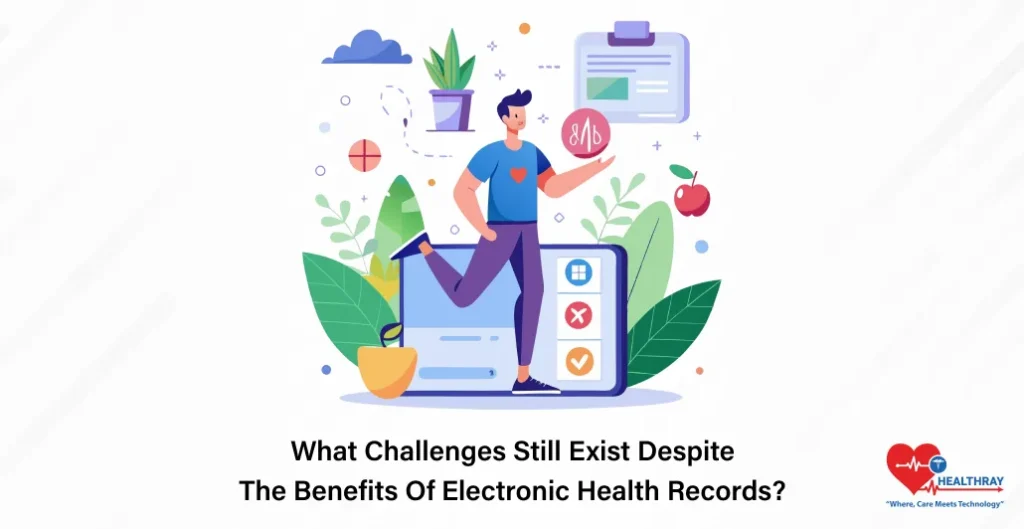
Despite the great benefits of Electronic Health Records, hospitals are still in serious trouble. Firstly, the issue is cost. Establishing and implementing an EHR software or EHR systems generally involves large expenses in technological resources, licenses, and training personnel. Consequently, smaller clinics often can’t absorb that cost. They have to reconcile movement with financial constraints.
In addition, another issue is data migration. Transitioning from paper files, some decades old, to electronic health record systems is no simple task. Moreover, processing may be slowed down by errors, missing values, or formats that do not match. Some staffers, too, are resistant to change. For instance, they still love working on paper and are scared of new devices. As a result, this slows adoption and creates frustration.
Furthermore, cybersecurity is a major threat. Patient information that is stored in hospitals’ EHRs is valuable and thus a target for hackers. Indeed, one breach puts the patient and the hospital at risk. Therefore, updates, password support, and vendor support then become critical.
Nevertheless, these challenges are not insurmountable. Picking good vendors, incremental rollout, and training can all help a lot. Ultimately, if we are patient and work with providers, we can all reap the rewards of EHRs in terms of secure data, intelligent systems, and more.
Conclusion
There are more advantages than disadvantages of Electronic Health Records. Using EHR software, hospitals can provide faster, safer and more connected care. It requires some effort to get set up and trained, but it is worth it.
The electronic health record in hospitals enables physicians and patients to make better decisions on a daily basis. With technology advancing, EHR systems can change healthcare by changing data into outcomes, teamwork into trust, and care into a truly seamless experience for all.
